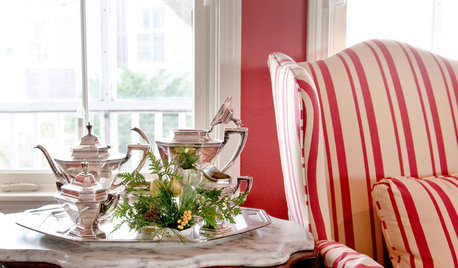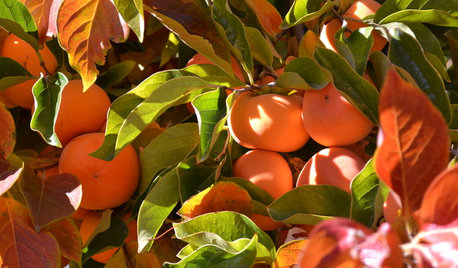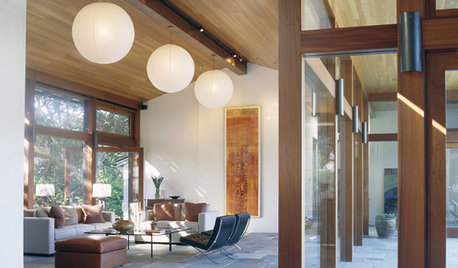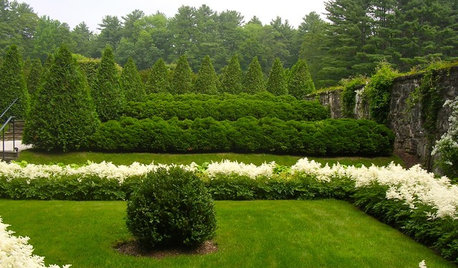China, Korea and Japan
Herb
19 years ago
Related Stories

CONTEMPORARY HOMESHouzz Tour: Japan, China and the Netherlands Influence a Utah Home
A confluence of worldwide inspirations results in a stylish and efficient new house for a Park City family
Full Story
DECORATING GUIDESTastemaker: Meet Reiko Kaneko's Modern China
A ceramicist resurrects traditional English bone china in clever new forms
Full Story
ARCHITECTUREWorld of Design: A Tokyo Exhibit Experiments With the Future of ‘Home’
Japan’s architects and housing industry explore new ideas for dwellings that respond to changes in society, tech and the natural world
Full Story
LIFESimple Pleasures: Indulging in Teatime
Get out the china cups and cream-slathered scones. Tea with treats can make even an uneventful day feel extravagant
Full Story
ACCESSORIES9 Fresh Ways to Use Classic Blue and White Ceramics
Add a crisp, clean touch to a room with a china or porcelain jar — or a collection of them
Full Story
FRUIT TREESHow to Grow Your Own Persimmons
Sturdy and easy to care for, these trees offer bright fruit through winter — and keeping them in bounds is no sweat
Full Story
ACCESSORIESMake Things Magical With Paper Lanterns
Set some poetry in motion with affordable Asian-style paper lanterns that enchant as everyday or party decor
Full Story
FLOWERSGreat Design Plant: Astilbe
Astilbe's feathery white flowers add unique texture to the garden, even as the weather turns cooler
Full Story
DECORATING GUIDESMy Houzz: A Tranquil Place on a Busy Street
An interior designer helps a couple transform their urban apartment in bustling San Francisco into a home
Full Story
DECORATING GUIDESColor Guide: How to Work With Red
Sizzling or sedate, red is not for the timid. Here's how to use its boldness to make your rooms come alive
Full Story





george_in_the_uk
Gorfram
Related Professionals
Glen Ellyn Landscape Architects & Landscape Designers · Seabrook Landscape Architects & Landscape Designers · Tomball Landscape Architects & Landscape Designers · East Patchogue Landscape Architects & Landscape Designers · Columbine Landscape Contractors · Dinuba Landscape Contractors · Duarte Landscape Contractors · Hickory Hills Landscape Contractors · Longmont Landscape Contractors · Paramount Landscape Contractors · Vermilion Landscape Contractors · Baltimore Decks, Patios & Outdoor Enclosures · Dearborn Decks, Patios & Outdoor Enclosures · Lebanon Decks, Patios & Outdoor Enclosures · Roanoke Decks, Patios & Outdoor Enclosuresinkognito
HerbOriginal Author
inkognito
HerbOriginal Author
bambooo
HerbOriginal Author
yama
Gorfram
HerbOriginal Author
edzard
doc3
jeepster
inkognito
Gorfram
HerbOriginal Author
ScottReil_GD
yama
gregoryjohn
Gorfram
nachodaddy
inkognito
nachodaddy
yama
inkognito
nachodaddy
inkognito
yama
inkognito
Gorfram
nachodaddy
yama